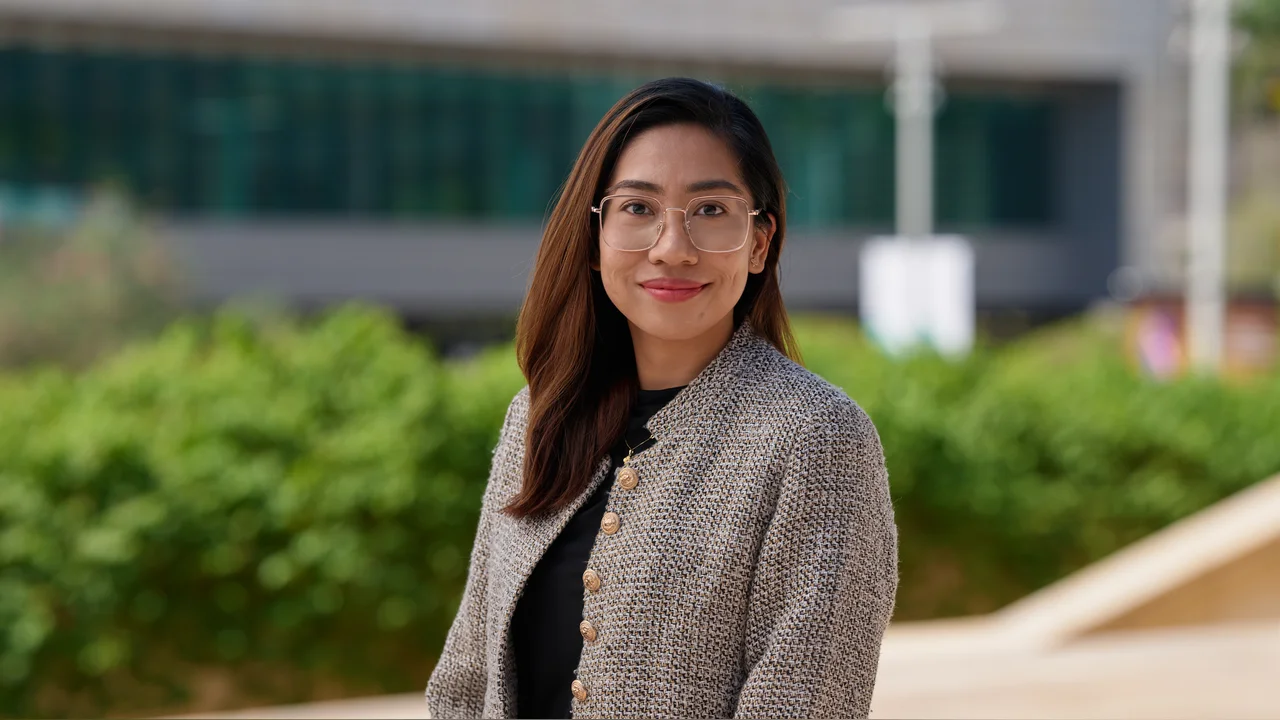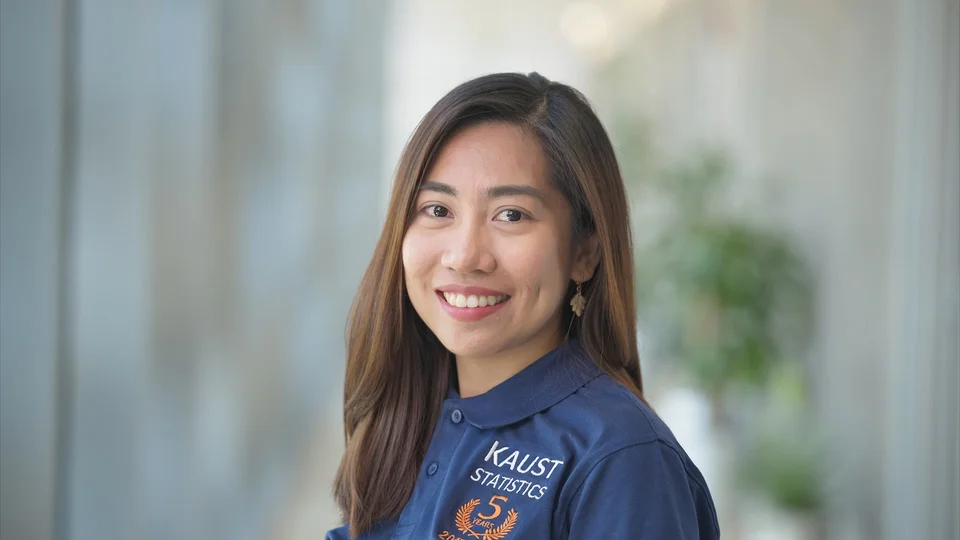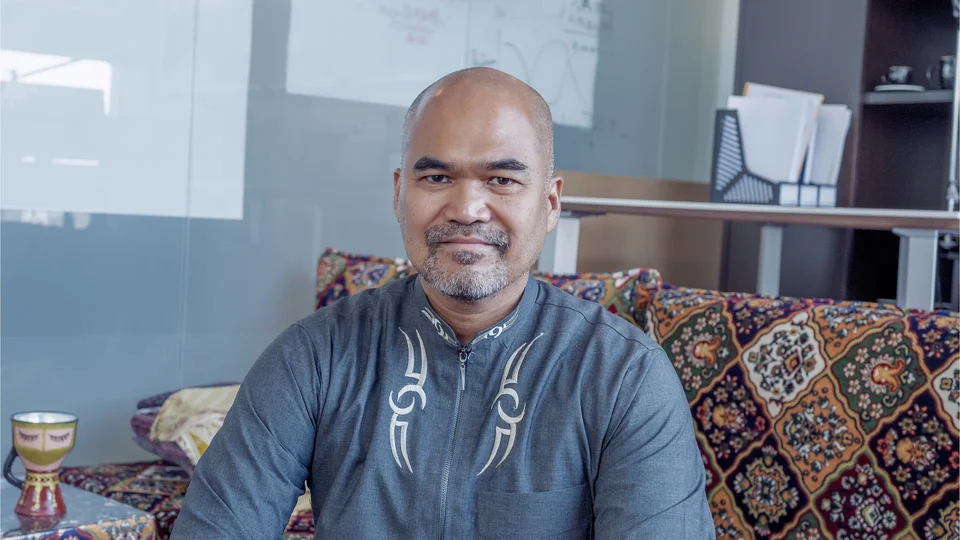
KAUST Ph.D. candidate Mara Sherlin Talento wins International Statistics Institute (ISI) Services Award
KAUST Ph.D. candidate Mara Sherlin Talento has received the International Statistics Institute (ISI) Services Award in recognition of her leadership, global outreach, and contributions to the development of young statisticians.
About
As an emerging statistician, KAUST Ph.D. candidate Mara Sherlin Talento uses her growing research profile to advocate for young statisticians worldwide. Alongside her core research responsibilities, she actively listens to her peers’ needs and helps identify ways the broader statistical community can better support them.
During a fruitful three-year period, from 2020 to 2023, Talento, a member of the Biostatistics (BIOSTATS) Group, served as chair of the Young Statisticians (YS) group of the International Statistics Institute (ISI). During her tenure, she organized major events and collaborated with leading statistical agencies in Austria, Indonesia and the Netherlands to create new opportunities for early-career statisticians.
Her leadership and service to the global statistics community have earned her the ISI Services Award, which she received at the 65th ISI World Statistics Congress, held Oct. 5–9, 2025, in The Hague, Netherlands.
“It felt both rewarding and humbling. Being recognized by such a respected institution is a reminder of how meaningful service can be, and I’m grateful for the opportunity to contribute to our community,” Talento said.
“I also want to sincerely thank my supervisor, Professor Hernando Ombao at KAUST, for providing my BIOSTATS colleagues and me with the resources needed to become well-rounded researchers, and for the university’s support and recognition of our work,” she added.
Staying connected
According to Talento, young researchers can make meaningful contributions simply by staying connected and being visible.
“By 'connected,' I mean reaching out to researchers across all career stages and disciplines. In one of my papers, I collaborated with an expert in neurology, Professor Leena Ibrahim from the BESE Division, and we uncovered interesting brain connectivity patterns in mice. In another paper, I worked with an expert in epilepsy to address real-world challenges in the field.
“Last year, I won the Best Poster Award at the Data Science, Statistics and Visualization Conference held at George Mason University in the United States. My success was not because I developed the best statistical method, but because I could communicate how it could be applied in real-world settings. In doing so, young researchers like me advance the discipline and inspire the next generation to engage in its development.”
Talento’s current research focuses on developing innovative tools to measure dependence in complex, high-dimensional and heavy-tailed brain signals. Her work primarily applies to brain imaging data such as electroencephalogram (EEG) and functional magnetic resonance imaging (fMRI). These methods are also broadly applicable to other types of time-series data, including financial and environmental datasets.
“Most of my tools are applied to brain signals like EEGs, which can be used to: one, track attentiveness in pilots, surgeons and truck drivers; two, provide biofeedback to help the mind relax and reduce stress; and three, support other medical technologies such as neuromodulation. With sufficient collaboration, we could develop automated tracking systems and broader applications for health, wellness and even finance.”
The importance of data
In today’s world, data is ubiquitous. Statistics enable us to collect reliable information and transform it into meaningful insights, making them essential in everyday life. When statistics are misused or misinterpreted, they can lead to significant errors with large-scale consequences. When applied correctly, statistical analysis can save resources, inform decisions and simplify our lives.
Additionally, data plays a crucial role in optimizing modern technologies such as artificial intelligence (AI) and generative AI systems, which are rapidly transforming the way we work and conduct business.
Beyond practical applications, statistics, according to Talento, give meaning to abstract models.
“At the World Statistics Congress, I heard Dr. Guannan Wang, an associate professor at the University of Georgia, say: ‘Generative AI can create images, but it is statistics that gives those images a scientific backbone. Without us, it’s purely art; with us, it becomes knowledge.’”
“The digital era has allowed statistics to achieve more by marrying technology with problem-solving skills. In smart health, for example, our smartwatches collect data on biomarkers, while statistics convert that data into information we can read in our digital apps. There are also novel trajectories where statistics can impact brain-computer interfaces and digital twins.”
Talento is confident that her host country, Saudi Arabia, has the potential to become a globally connected hub for smart health and biostatistics. For her, it is a place where talent and resources exist in perfect harmony.
“The sky’s the limit when it comes to the Kingdom’s impact on the global stage. The BIOSTATS Lab is actively using advanced data science and AI technology to support the Health and Wellness pillar of the Kingdom’s Vision 2030,” Professor Ombao said.
“Currently, we are developing tools to uncover the relationship between fasting and glucose levels, with the potential to transform this knowledge into a personalized health-tracking app,” Talento said.
“There are many talented individuals and collaborative efforts at KAUST (including our lab) working toward transforming knowledge into real-world impact. Not only is this kind of research fully attainable at KAUST, but the talent needed to realize it is equally abundant.”

